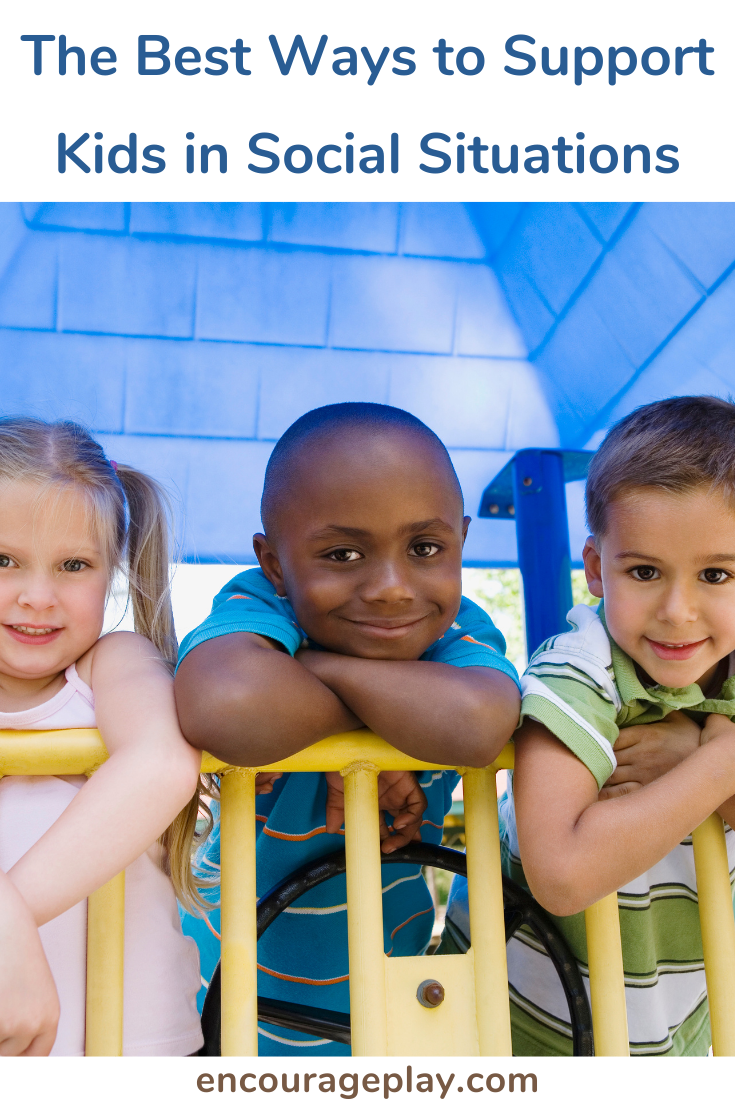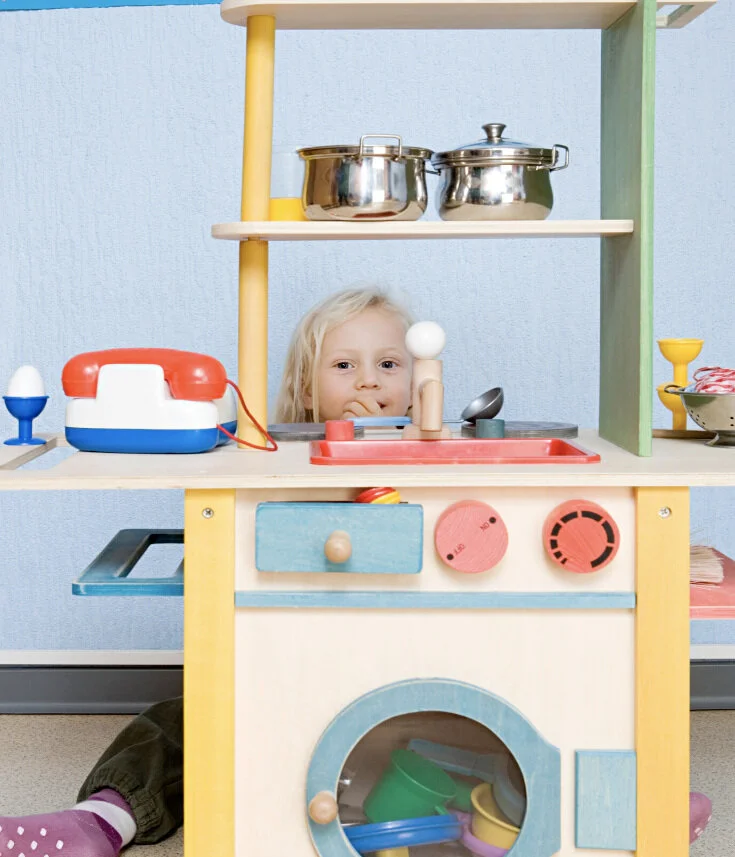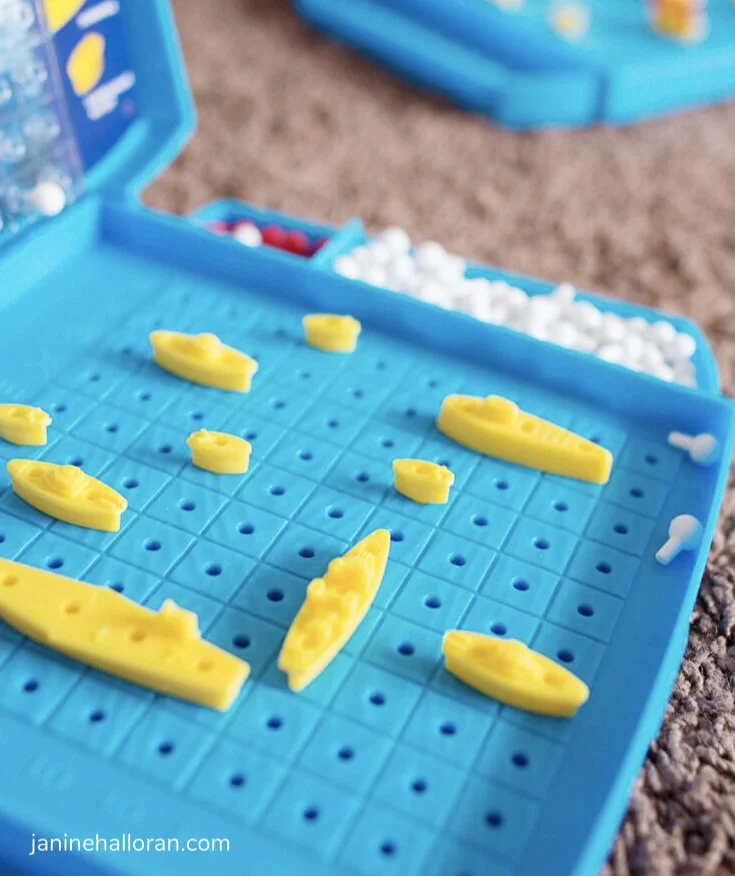I was invited to join a group of wonderful bloggers to write for the series Happy New Year, Healthy Kids. This series is focused on ways we can help our kids be happy and healthy in this new year. But what do social skills and friendship have to do with health?
Think for a minute about the positive friendships in your life. Healthy friendships provide support, make you feel connected with others, reduce your stress and increase your happiness. It’s so wonderful to have these people around you! In order for kids to start and maintain friendships so they can experience these benefits too, kids need to learn social skills and how to interact positively with others.
Kids who are socially successful tend to feel better about themselves, manage emotions better and tend to feel more positively about life. Having good social skills are critical for success throughout the school day and life in general. It is something that can be taught and, in fact, it’s imperative that children learn these skills to successfully interact with others.
But how do we help our kids develop these friendships, especially kids who struggle in social situations? We need to give them opportunities to practice and work on their social skills in the real world, with support.
This year, let’s create social opportunities for our kids and support them when they need it!
Here are three common social situations and some tips to help you support your child!
On Playdates
Keep it short and sweet
Schedule a playdate for only an hour or two. An open ended playdate can be overwhelming. Limiting the time will help make sure the experience is positive and ends on a good note.
Have them over to your home
If it’s your first time having a play date with a potential friend, have them over at your home. Your child will feel more comfortable on their own turf. Make sure you put away any special toys or items to prevent any big blow ups.
Monitor nearby
Stay close by and keep an ear out for their interactions. You don’t need to be in the same room with them, but you also need to be ready to step in if you need to. You know when it’s getting to be too much for your child. If things start to get too feisty or they’re not interacting, be prepared to move in.
Have structured activities on hand, just in case.
If you do need to step in because it’s not going well, transitioning them to a structured activity can help ease tension and keep things positive. It could be a game (like guess who or connect 4), an art project, or a cooperative activity (like a treasure hunt).
A good snack goes a long way.
Kids love yummy snacks, and snack time can be a transitional activity if things start to get bumpy. You can even make a snack together as an activity. I recommend keeping it low sugar. The sugar crash can be especially bad and can lead to an increase in behaviors. I’ve seen it with my youngest on more than one occasion.
At the playground
Keep an eye out.
Monitor if your child has made a connection with someone. If not, keep an eye out for a nice kid who could be a good connection. That way, if your child keeps looking, you can help point them in the right direction.
Encourage them to approach other kids.
It may not always work, but it’s good practice to start a conversation and start playing together. And, you never know, they may say yes :-)
Be prepared to step in if things get feisty
I recommend letting kids try to solve conflicts on their own, but, just like on a playdate, monitor your child. If you know he’s about to blow up, it’s time for you to step in.
At a party
Do a little research
How many kids will be there? Anyone you know? Where is the party? Do you know what it looks like? What are the activities going to be? If it’s at a location like a YMCA or a party place, you can even visit beforehand to make things more familiar for your child.
Talk with your child beforehand
Do some prep for what may happen at the party and go over expectations. Talk through the schedule with your child. For example, you could say:
“We’re going to a party with a splash pad and a bouncy house. First, we go to the bouncy house and then we’ll go into the splash pad. After that, we’ll get dried off and have pizza and cake. Then it will be time for presents and to go home.”
This is an example of a script I’ll use for my son for a party we’ll be going to this weekend. You can add more details to target what your child may struggle with. For instance, some kids struggle when other kids open gifts. If that is the case for your child, add in a line or two about what should happen when the birthday child opens gifts.
Give them a heads up about transitions.
For a lot of kids, transitions can be difficult. Giving kids a 5 or 10 minute warning when it’s time to leave can be helpful. I like to whisper it in my child’s ear so I can double check they understood me and make sure they don’t feel embarrassed.
Stop by Happy New Year, Healthy Kids throughout the month to read practical, real life ideas for improving your child’s health and well-being. Here’s to making 2015 a great year!!













